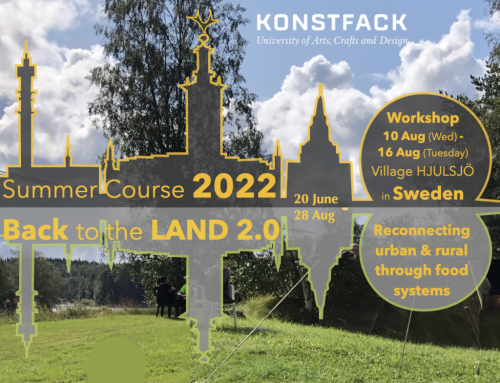Randy Hayes, Executive Director of Foundation Earth, published an insightful paper called Rethinking society from the ground up. It includes these 12 principles guiding an holistic economy.
1 Interdependence Principle: A societal recognition that nature nourishes all things is a higher value then human self-interest. The economic rules reward solving problems together over any aggrandizement. Any market system is subservient to nature’s laws. Cooperation not competition is the new social doctrine and basis for the new economic order. Industrial advance crushing nature’s ways for the sake of capital is a thing of the past.
2 Responsibility Principle: Each generation leaves less and less of an ecological footprint, despite the population size, consumption rates, or technology choices. Every human has the duty to protect diversity within the whole, which has an inalienable right to exist, flourish, and evolve. Hard work to personally get ahead would still have a place in the system, but beyond sustainable consumption levels, family education, and retirement security most of any economic proceeds would need to support broader values.
3 Carrying Capacity Principle (Sometimes called Planetary Boundaries): Free markets are not free from ecological limits. The economy and society must work to keep population, rates of consumption, and technologies in synch with (below) global, continental, and bioregional carrying capacity limits. The carrying capacity of a biological region needs to rule its human economy. Institutions of educational research and public governance need to be set up to better understand, and communicate appropriate operating spaces.
4 True Cost Principle: When pollution externalities are internalized into the price you pay for goods and services, the “ecologically cleanest is the cheapest”. When that has been done we have more of a “True Cost Economy” and the search for a bargain works for us instead against us. Dumping pollution into the river or sky is a form of “Cheater Economics” and is no longer acceptable. This is analogous to the Polluter Pays Principle or the Internalization by Design approach.
5 Non-commodification of Nature Principle: Non-renewable resources (soil, water, land, primary forests etc.) aren’t to be treated as a commodity. Of the three basic categories of economic relationship include ownership, stewardship, and partnership the third one is to be emphasized in the general economy. Stewardship still implies some patriarchy (i.e. I will steward you…), while partnership shows a more authentic reciprocity.
6 Precautionary Principle: When the consequences are possibly cataclysmic (such as cancer death) employ a “when in doubt play it safe” approach. This is what a mother does when raising her child and what we should do regarding the planet we live upon. The “burden of proof” lies with the initiator and problem shifting is unacceptable. There are times when policies and laws should buffer nature from the market.
7 Compassionate Local Self-Reliance Principle: Employing the “Small is Beautiful” approach. Community-based, local production for local markets; trading within and among communities; new-style bartering without the traditional growth concept inherent to today’s money; and trading values for values, satisfying real needs, while helping others, rather than inventing new ones will be the approach of this economy. Maximize local, regional, and continental self-reliance, while actively helping other regions maximize their self-reliance. This is the care economy not the profit economy. Adhere to the subsidiarity approach, while valuing place & community. [Note: Subsidiarity is an organizing approach or principle that matters ought to be handled by the smallest, lowest or least centralized competent authority.]
8 Prosperity Principle: The economic system is set up to help all (now and the future) earn and enjoy financial and food security, success, or good fortune. Greedy individual advance at the expense of others would not be tolerated.
9 Ecological Literacy Principle: Wild nature, operating according to its own laws, is our principle teacher. Nature’s laws are immutable and a higher order then human laws. Members of public governance are responsible to understand the principles of biosphere ecology and to help all constituents to understand nature’s ways at a high level such that all can support the whole. There is no economic development or social equity on a dead planet.
10 Proper Public Governance Principle: Employing ecological literacy with other humanistic values, society must debate the legitimate functions of public governance and then fund it to fulfill those functions in a thoroughly competent manner. This included the proper social safety net level. Government regulation is not the enemy. Appropriate government regulation is key to protect the whole for this and future generations of the entire web of life. As E.F. Schumacher clarified, a sensible political economy fits nature and human nature.
11 Redistribution Principle: The economy needs to essentially be a zero waste, closed loop, sustainable production and consumption system. This is especially true for non-renewable resources.
12 Feedback Principle: Every living system must have accurate feedback to self-correct. Recognizing the distorting effects of many current measures of progress and welfare (such as the Dow Jones Index or GDP). Accurate and holistic measures need to be employed such that people see what they need in a timely manner (i.e. some items weekly, monthly, quarterly, annually, by decade, by century, etc.) to make mid-course corrections. The new parameters will measure levels of public health and education, standards of nutrition, housing, gender equality, use of renewable resources, use of non-renewable resources, the degree of local self- reliance, and the success a closed-loop, zero-waste sustainable production and consumption system. There will be indicators of environmental protection and restoration, society’s capacity to resolve conflicts, and more.




